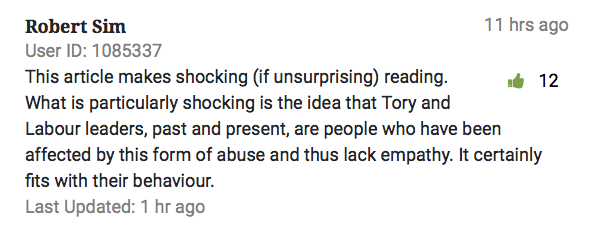
THREAD on drop-offs & pick-ups.
I've thought about this article all yesterday eve & this morn. It suggests that it is better to keep parents out of nurseries, because children settle better. The phrase "Ofsted finds" implies data were systematiclly collected & evaluated. Not so.
I've thought about this article all yesterday eve & this morn. It suggests that it is better to keep parents out of nurseries, because children settle better. The phrase "Ofsted finds" implies data were systematiclly collected & evaluated. Not so.
https://twitter.com/daynurseriesuk/status/1428059871644160002
2. I regularly say that "drop off is the most important moment in a child's day". That's because the way that separation is handled by adults produces biological changes in children. That's what attachment theory teaches us.
3. If we really understd attachmnt theory, we wd recognise how crucial drop-off is. We wd conduct research studies on it. Best practice guidance wd be written & published in policy frameworks. That doesn't happen. Nursery drop-off practice is informed mostly by tradition & habit.
4. Robertson's work on 1950s childrn's hospitals tackled ths issue. He took specific issue with the assumptions nurses made abt children's 'settling'. What he saw happening in hospitals was, instead, 'emotional deterioration'. It was uncomfortable for staff to hv to consider ths.
5. For anyone who hasn't seen it, here is a clip from Robertson's 1952 film, which he produced to try to get people to think more deeply about the emotions young children experience in times of separation. He encountered great professional resistance.
6. Why am I saying all this? Because it MATTERS that we think about children's emotional experiences of separation - from a child's perspective. Yes, we observe behaviour - closely. Then we contemplate the emotions & biology going on underneath. Not assume. Contemplate.
7. If there are EY settings, as described by @siandmil , who are experiencing drop-off as being calmer when parents aren't entering, then we need to know that & pay attention to it & get curious about it.
https://twitter.com/siandmil/status/1428254926845747203?s=20
8. But there are also parents like @M_ilyRhodes who are saying how anxiety-provoking they found the practice of 'dropping at the door'. Parents' anxiety matters -- to parents & to children. Drop-off practice needs to work for them both.
https://twitter.com/M_ilyRhodes/status/1428281400483057671?s=20
9. Child development specialists like @stoneg8training & @LauraHAllain are trying to make the point they have already produced deeply thoughtful accounts of how our current knowledge of child development can guide our thinking & practice.
https://twitter.com/stoneg8training/status/1428249524573769729?s=20
10. And there are numerous stories of children and parents being separated at the gate during the pandemic where both were crying copiously. Those stories matter as much as the ones where the parting was 'calm'.
11. ALL the stories &observations matter. They shd prompt us to curiosity, not conclusions. Calm childrn are easier for systms to handle. But a calm child does not necessarily mean content. It can just easily mean a child who has given up askng for help. That ws Robertsn's point.
12. I am so concerned to call attention to drop-offs & reunions that my team at @connectedbaby produced this set of video resources to help EY staff see what they often miss. @PitteucharE & @lullabynursery are amongst teams already using them. connectedbaby.net/product/tigers…
13. It used to be common to say to the parent "Go now, quick, while he's not looking." What we know now is that this upset children even worse. They learned their parent could disappear when they weren't paying attention. Well-meaning staff made children hypervigilant to parting.
14/end. The pandemic has changed us all in ways we may not yet even know. If it is going to change t way we welcome children daily into nursery, let's do that frm a wise, informed place - because the way we drop off children at nursery changes their biology for their whole life.
@LauraHAllain @TIGERSEYAcad @paulinescott222 @Mr_PaintPots @JKnussen @daynurseriesuk @NDNAtalk @NdnaScotland @RobinCogan @childinmind @_LisaCherry @LisaReagan3 @KeepEYsUnique @kymscott5 @UpstartScot @GiveTimeScot @sallycroachy @GoddardBlythe @WATCUK @TheBabyExpert @JANEOROURKE
• • •
Missing some Tweet in this thread? You can try to
force a refresh
















